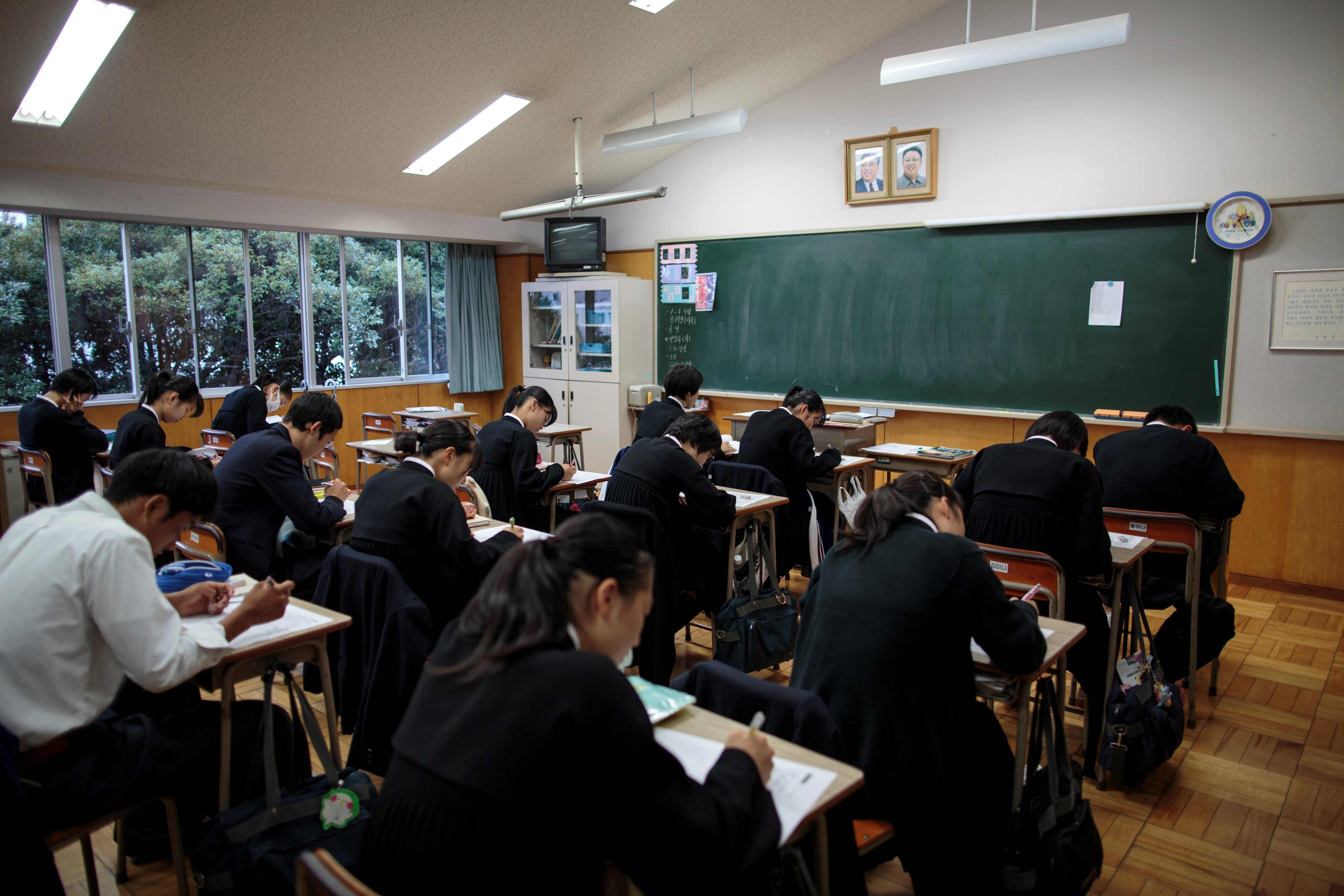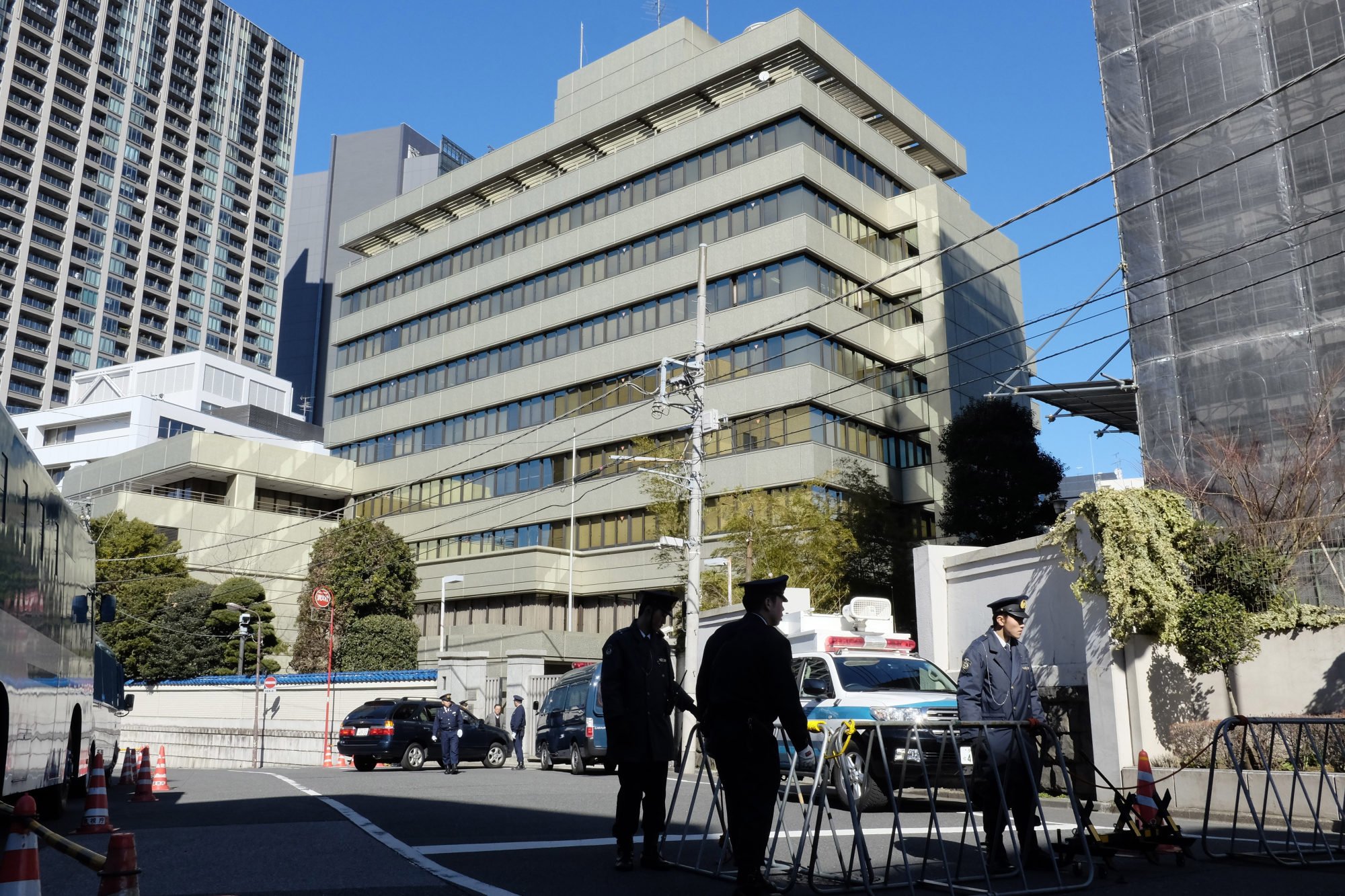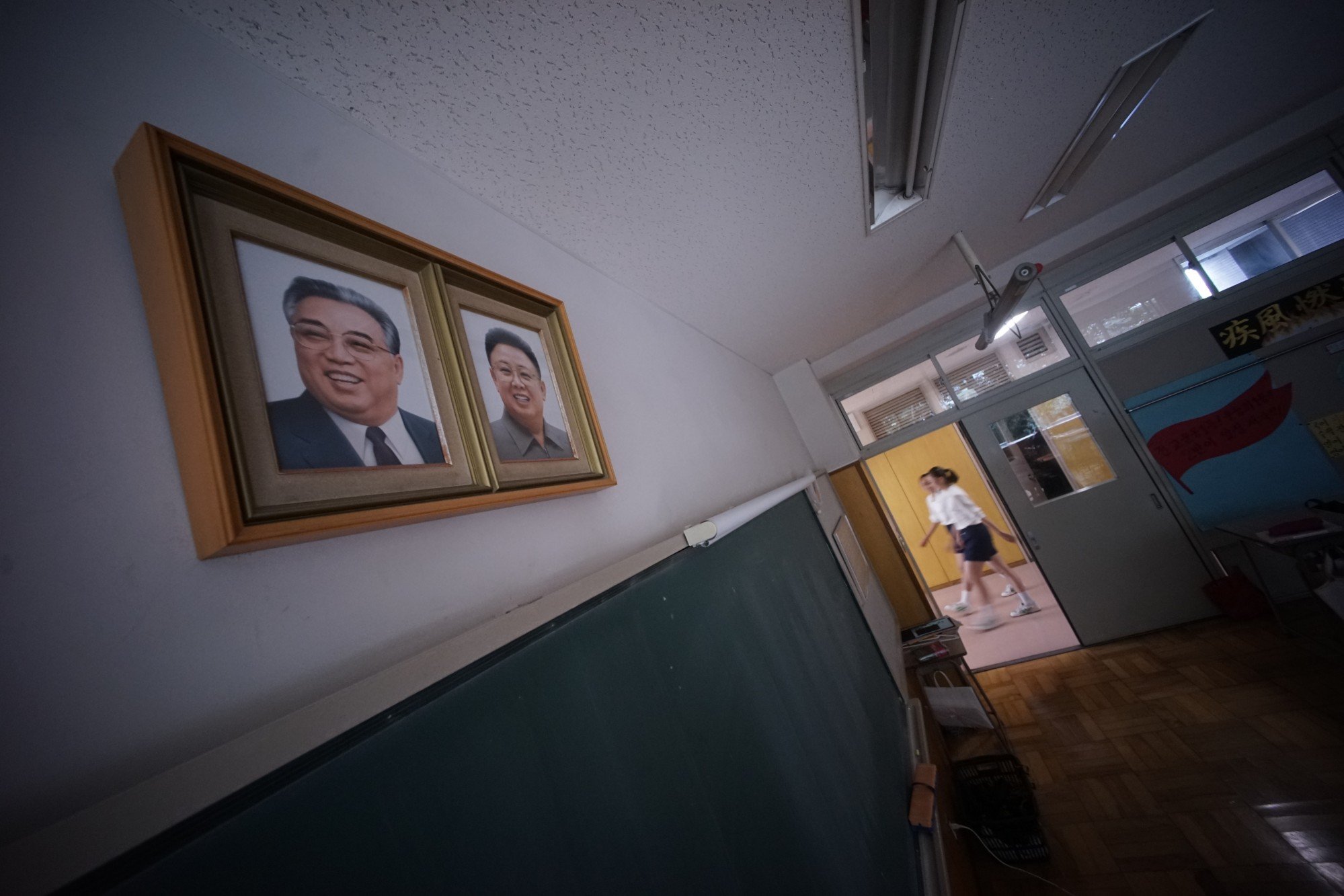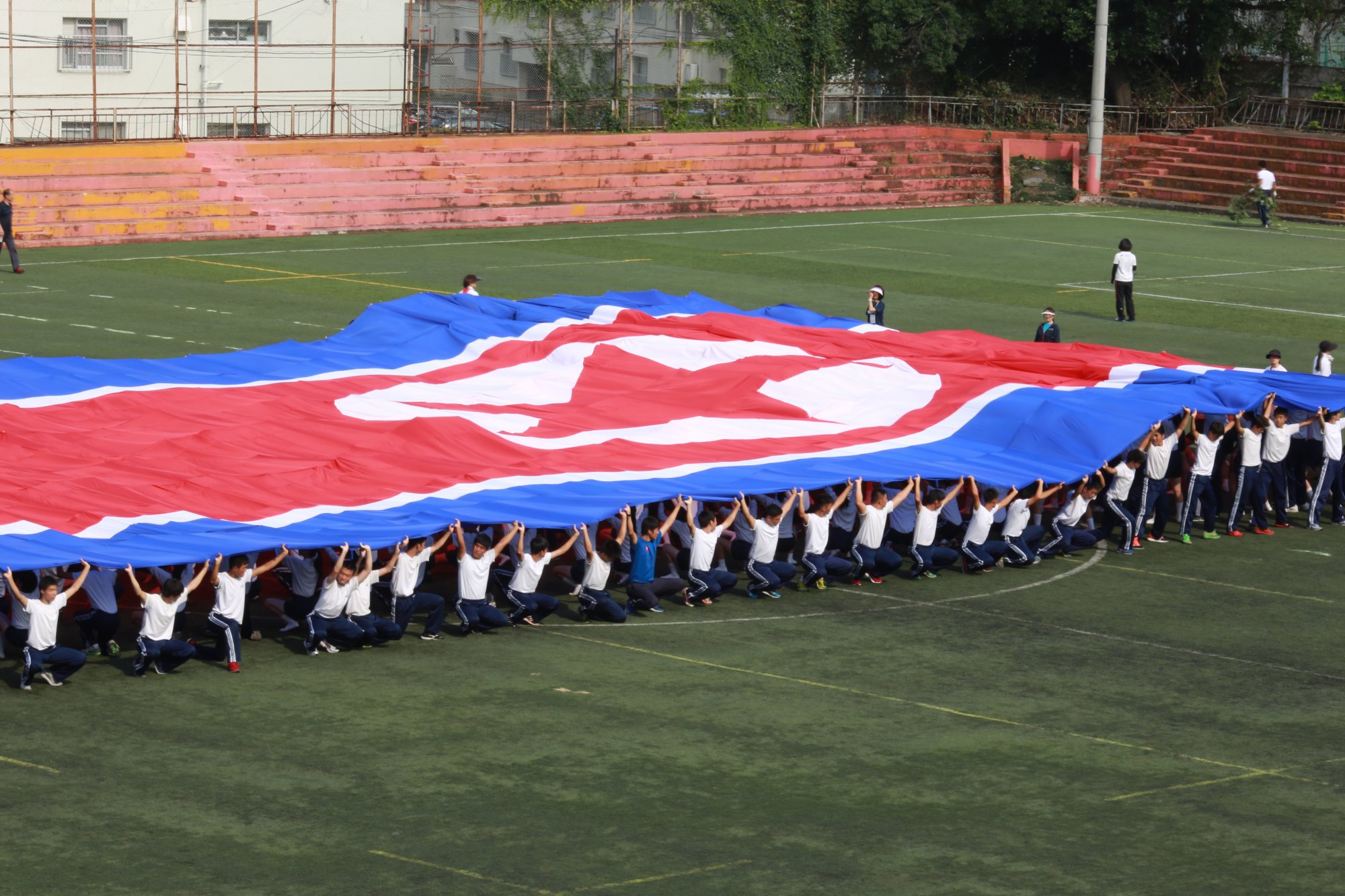Funding cuts for Japan’s North Korean schools reignite bitter divisions
Chosen Soren has called for funding to be restored, saying Japan is ‘politically very unfriendly’ to the local North Korean community

Members of the North Korean community in Japan have accused Tokyo of systematically undermining ethnic Korean schools through funding cuts – echoing Pyongyang’s denunciation of the policy as a “violation of human rights” – in a long-running dispute shaped by Tokyo’s colonial rule and bitter divisions over identity and loyalty.
Senior members of Chosen Soren – the pro-Pyongyang organisation representing North Korean residents of Japan – are “very angry and dissatisfied” and have urged Tokyo to restore funding for their schools, according to Choe Kwan-ik, former managing editor of the Choson Sinbo newspaper.
“Every year, local governments provide less and less financial support to our schools. We have been fighting for years to address this problem caused by the national and local governments, and we are finding that an increasing number of our Japanese friends are also now voicing their opposition to the policy,” Choe told This Week in Asia.
“But basically, Japan is politically very unfriendly to the North Korean community here,” said Choe, who now acts as an adviser to the publication and is active in supporting causes important to Chosen Soren.

The organisation is a legacy of Tokyo’s colonial rule of the Korean peninsula between 1910 and the end of World War II in 1945, during which thousands of Koreans were brought to Japan to work for Japanese companies. After Japan’s surrender, many chose to stay, with their loyalties uncertain on the divided peninsula.
Chosen Soren’s demand comes on the back of condemnation from Pyongyang, where the Korean Jurists Committee has criticised the move as a “hideous violation of human rights”. In a statement issued on April 24, the committee urged Tokyo to meet its “legal and moral obligations” by restoring funding for more than 60 North Korea-linked schools across Japan.
“No one can infringe upon the sacred right of Koreans in Japan to democratic national education,” the statement read.
The “brigandish” policy, it added, was “a hideous violation of human rights that can never be found in the history of any country to deprive people of even their elementary right to teach the rising generations their mother tongue”.
Unsurprisingly, many Japanese today dismiss the North Korean side’s claims and insist it is “ridiculous” to oblige Japanese taxpayers to fund an education system that teaches young people to revere North Korean leader Kim Jong-un.
“The very first thing I have to say is that it is a lie to say there is discrimination against North Korean pupils in Japan,” said Yoichi Shimada, a politician with the minority Conservative Party.

According to Shimada, Japanese public schools admit pupils whose parents are Chosen Soren members “with no problems at all”, saying the children are treated equally.
Rather, many Japanese objected to taxpayers’ money being given to “North Korean schools that provide their pupils with a ‘cult education’”, Shimada said.
“These children are told that Kim Jong-un is a godlike figure, when in truth we know that he and his regime are one of the most egregious violators of human rights in the world,” he said.
“Can you imagine if a school in Germany was teaching children that Adolf Hitler was a heroic, godlike figure? There would be outrage. There is no way that the Japanese people should be subsidising an education system that teaches such lies.”
Chosen Soren school officials’ involvement in North Korean operations against Japan has also elicited resentment in Japan.
Kim Kil-uk, the former head of the Chosen Soren school in Osaka, was accused of involvement in the 1980 abduction of Japanese national Tadaaki Hara and remains on Interpol’s wanted list.
Similarly, Cho Gyu-son, former head of the Chosen Soren school in Shimonoseki, reportedly sold of 250kg of amphetamines to a member of a Japanese criminal group in the North Korean port of Wonsan in 2000. He remain on the Japanese police’s wanted list.
The issue of funding for North Korean-affiliated schools has rumbled on for many years but has become an increasingly acute issue for the community here as the number of children falls and the higher cost of sending them to a Chosen Soren school encourages more parents to put them into the regular Japanese education system.
There are currently about 10,000 pupils at Chosen Soren schools, down sharply from more than 40,000 in the peak years of the 1970s.
The schools stick rigidly to a North Korean curriculum and pupils are taught to revere the Kim dynasty as their leaders. Chosen Soren also operates a university, with many graduates going on to work at companies linked to the organisation, such as travel, trading or media firms.

The Japanese government halted financial support for the schools in 2013 as a result of Pyongyang’s failure to cooperate on the question of Japanese nationals abducted by the North. Some local authorities in Japan have continued to provide assistance, although this has shrunk due to worsening local government finances and opposition from taxpayers.
According to the Sankei newspaper, a total of 230.6 million yen (US$1.61 million) was provided to Chosen Soren schools by 93 prefectural, city, ward and town governments in financial year 2022, the latest year for which figures were publicly available. Kyoto City, for example, provided 4.06 million yen, down from 9.45 million yen in 2015.
In 2009, Osaka prefecture was providing 200 million yen a year, but then-governor Toru Hashimoto asked the local branch of the organisation to “distance itself from Chosen Soren” as its links to North Korea were causing unrest among taxpayers. The prefecture received no response, so it halted providing funds.
“This is an ideological and politically motivated policy,” Choe said.
“We have appealed against the government’s position to the international community and the United Nations has issued a warning to Tokyo telling it to reverse the policy and to halt this racial harassment and discrimination, but the Japanese government has rejected that.”